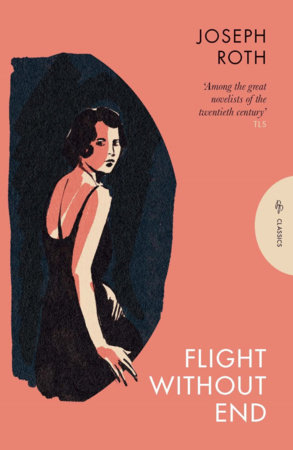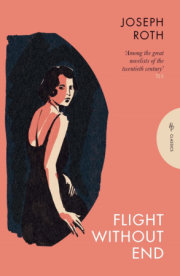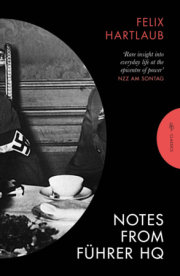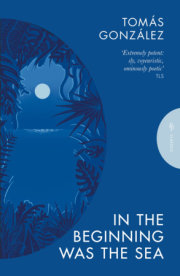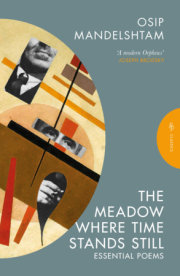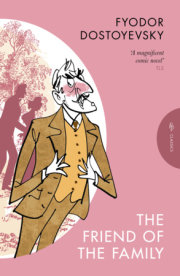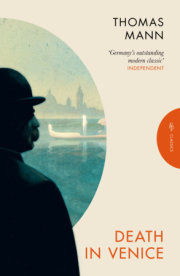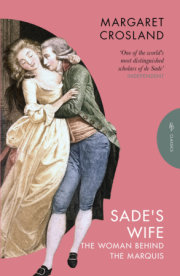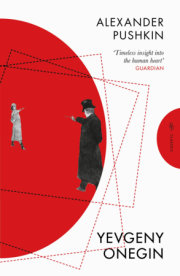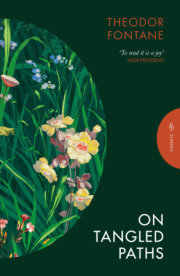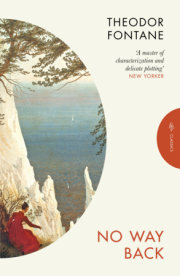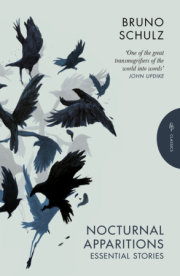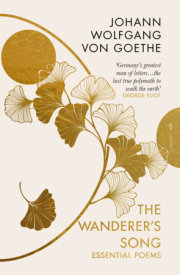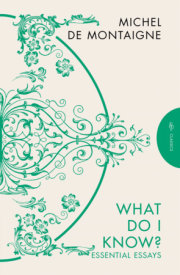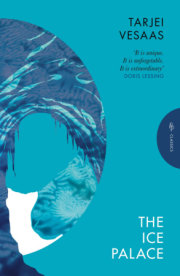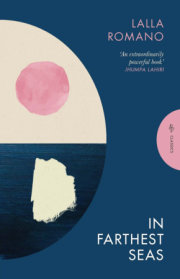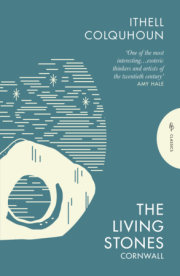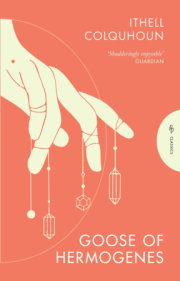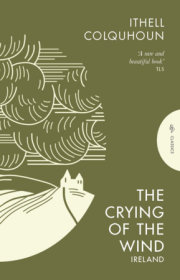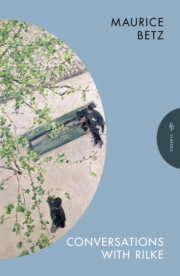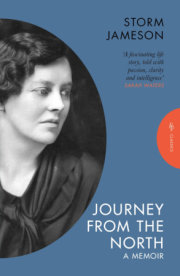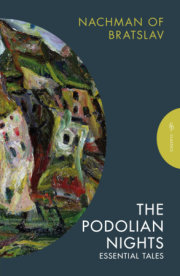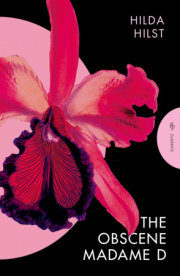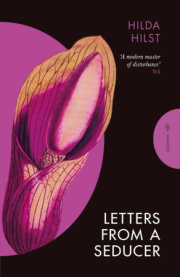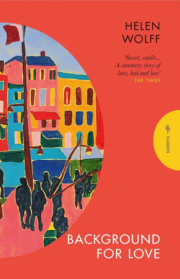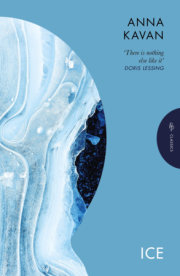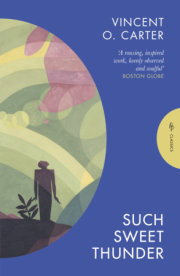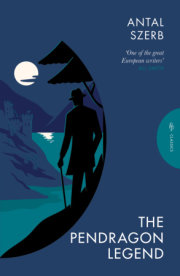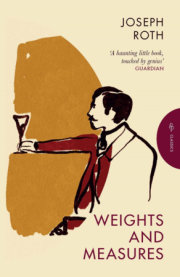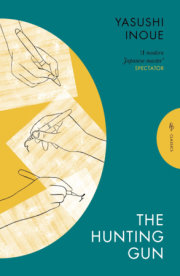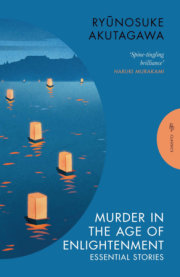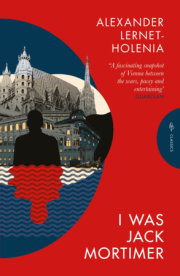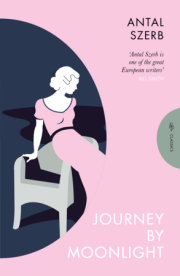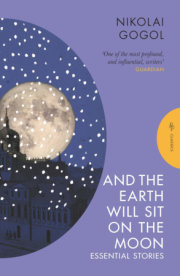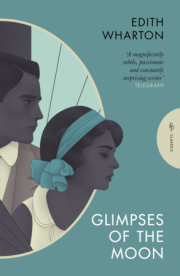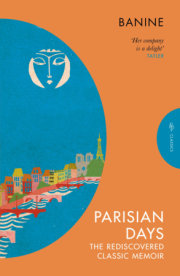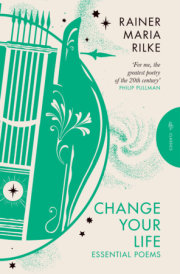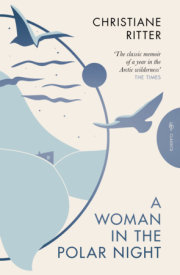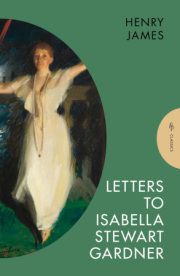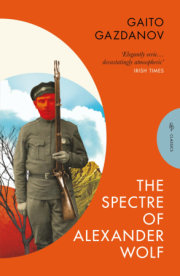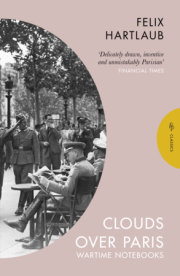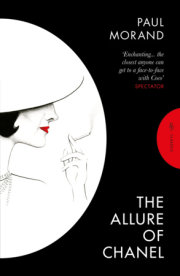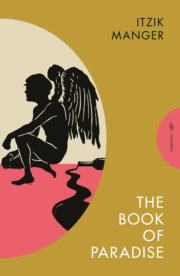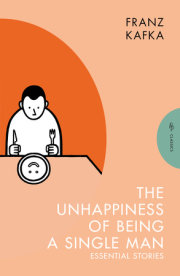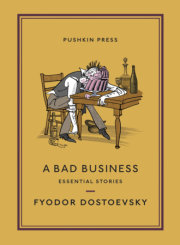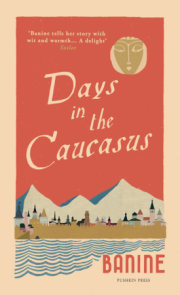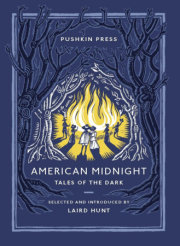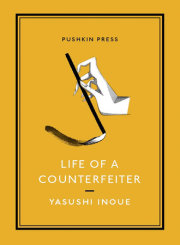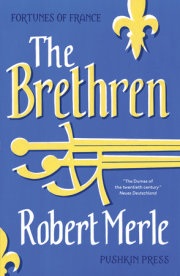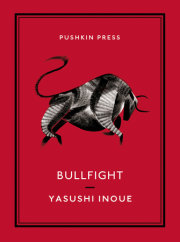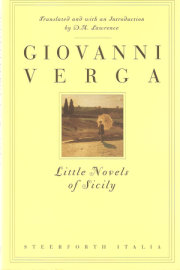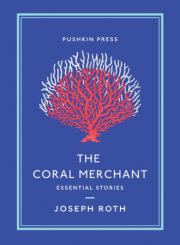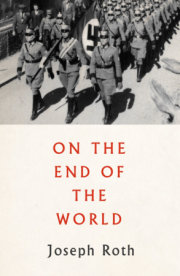Franz Tunda, first lieutenant in the Austrian Army, became a Russian prisoner of war in August 1916. He was taken to a camp a few versts north-east of Irkutsk. He succeeded in escaping with the help of a Siberian Pole. On the remote, isolated and dreary farm of this Pole, the officer remained until the spring of 1919.
Foresters stopped by at the Pole’s, bear-hunters and fur- traders. Tunda had no need to fear pursuit. No one knew him. He was the son of an Austrian major and a Polish Jewess, born in the small Galician town of his father’s gar-rison. He spoke Polish; he had served in a Galician regiment. It was easy for him to pass himself off as a younger brother of the Pole. The Pole’s name was Baranowicz. Tunda called himself likewise.
He obtained false papers in the name of Baranowicz, was henceforth born in Lodz, had been invalided from the Russian Army in 1917 on account of an incurable and infectious eye disease, and was by occupation a fur-trader resident in Verchni Udinsk.
The Pole counted his words like pearls; a black beard reinforced his reserve. Thirty years earlier he had come to Siberia as a convict. Later, he stayed on of his own free will. He collaborated with a scientific expedition exploring the
taiga, roamed in the forests for five years, then married a Chinese woman, became a Buddhist, stayed in a Chinese village as doctor and herbalist, had two children, lost both of them and his wife to the plague, returned to the forests, lived by hunting and fur-trading, learned to recognize the tiger’s tracks in the thickest grass, omens of storms in the erratic flight of birds, knew how to distinguish hail- from snow-clouds and snow- from rain-clouds, studied the habits of foresters, robbers and harmless travellers, loved his two dogs like brothers, and revered snakes and tigers. He volunteered to serve in the war, but made such a sinister impression on his comrades and officers in the barracks that they sent him back to his forests as a lunatic. Every year, in March, he visited the town. He bartered horns, hides, antlers for ammunition, tea, tobacco and spirits. He also took back a few newspapers so as to keep in touch with events, but believed neither the news nor the articles; he did not even trust the advertise- ments. For years he visited a particular brothel to see one Ekaterina Pavlovna, a redhead. If someone else was with the girl Baranowicz would wait, a patient admirer. The girl grew elderly, dyed her grey hairs, lost first one tooth, then another, then her dentures, too. Every year Baranowicz had a shorter time to wait, until eventually he was the only one to visit Ekaterina. She began to love him, was consumed with yearning throughout the year, the late yearning of a late betrothed. Every year her tenderness grew, her passion increased; an old woman, with shrivelled flesh, she enjoyed the first love of her life. Every year Baranowicz brought her the same Chinese necklaces and the little flutes he carved himself, on which he imitated the calls of birds.
In February 1918 Baranowicz lost the thumb of his left hand when he was carelessly sawing wood. It took six weeks to heal; in April the hunters were due to arrive from Vladivostok; he was unable to visit the town that year. Ekaterina waited in vain. Baranowicz sent her a letter by a hunter and comforted her. Instead of the Chinese pearls he sent her sables and a snake-skin and a bear’s coat as a bedside rug. So it came about, in this most important of all years, that Tunda did not see a newspaper. Not until the spring of 1919 did he learn from Baranowicz on his return that the war was over.
It was a Friday. Tunda was washing the dishes in the kitchen, Baranowicz came through the door, the dogs were barking. Ice clattered on his black beard, a raven sat on the window-sill.
‘It’s peace, it’s revolution!’ said Baranowicz.
At that moment all was still in the kitchen. The clock in the next room struck three loud strokes. Franz Tunda put down the dishes gently and carefully on the bench. He did not want to disturb the silence. Probably, too, he was afraid the plates might break. His hands trembled.
‘All the way back,’ said Baranowicz, ‘I wondered whether I should tell you. I’m really sorry that you’ll be going home now. We shall probably never meet again, neither will you write to me.’
‘I shan’t forget you,’ said Tunda. ‘Don’t be too sure!’ said Baranowicz.
It was farewell.
II Tunaa Wanted to ReaCh the Ukraine, Shmerinka, where he had been captured, then the Austrian frontier-post at Podvoloczyska, and finally Vienna. He had no par- ticular plan; the way ahead was uncertain, even tortuous. He realized that it would take a long time. He had only one resolve: to avoid encountering either White or Red troops and not to get involved in the Revolution. He no longer had a home. His father had met his death as a colonel, his mother had been dead for many years. A brother was an orchestral conductor in a medium-sized German city.
In Vienna his fiancée, daughter of Hartmann, the pencil manufacturer, was expecting him. The first lieutenant knew no more about her than that she was beautiful, sensible, rich and blonde. These four qualities had made her a suit- able bride.
She used to send him letters and liver pâté in the field, sometimes a pressed flower from Heiligen Kreuz. He would write to her every week on dark-blue field-post paper with a moistened indelible pencil – brief letters, terse factual reports, news bulletins.
He had heard nothing from her since his escape from the camp. But he did not doubt that she remained true to him and was waiting for him.
He did not question that she would wait for him until his return. But it seemed to him just as certain that she would cease to love him once he was standing before her in person. For when she had become engaged to him he had been an officer. The world’s great troubles had lent him an air of beauty, the proximity of death had enhanced him, the shadow of the tomb had fallen across the living man, the cross on his breast had called to mind the Cross on the Hill. If one assumed a happy outcome, then, after the triumphal march of the victorious troops through the Ringstrasse, there would be waiting for him the golden collar of a major, the staff school, and the eventual rank of general, all to the sound of the soft drum-roll of the Radetzky March.
But for the moment Franz Tunda was a young man without a name, without importance, without rank, without title, without money and without occupation – homeless and stateless.
He had his old papers and a picture of his betrothed sewn up in his jacket. It seemed wiser to him to travel across Russia under the assumed name which was as familiar to him as his own. Once across the border he could again make use of his old papers.
Tunda felt the pasteboard on which his beautiful betrothed was portrayed firm and comforting against his heart. The picture was by the court photographers who supplied the fashion magazines with pictures of beautiful women. Fräulein Hartmann had appeared as the fiancée of the gallant first lieutenant in a series ‘Brides of Our Heroes’; the journal had reached him just a week before his capture.
Tunda was able to take the cutting with the picture from his coat-pocket without difficulty whenever he felt inclined to contemplate his fiancée. He mourned for her already, even before seeing her again. He loved her twice over: as an ideal, and as one lost forever. He loved the heroism of his far and dangerous journeying. He loved the sacrifice which was necessary to reach his bride, and the futility of this sacrifice. All the heroism of his war years seemed childish to him in comparison with the undertaking he was now attempting. Alongside his despair grew the hope that through this perilous return journey he could once more become desirable as a husband. He was happy the whole way. If anyone had asked him whether this was due to hope or sadness, he would not have known. In the hearts of some men sorrow creates a greater exaltation than joy. Of all the tears one may have to choke back, the most precious are those that one has shed for oneself.
Tunda managed to steer clear of both White and Red troops. In a few months he traversed Siberia and a large part of European Russia, by train, on horseback and on foot. He reached the Ukraine. He did not concern himself with the victory or the overthrow of the Revolution. The sound of this word evoked faint images of barricades, mobs, and the history instructor at the Cadet School, Major Horvath. ‘Barricades’ conjured up over-turned black school benches, piled on top of each other. ‘Mob’ could be equated with the crowd which used to mass behind the cordon of militia on Maundy Thursday. Of these people one saw only sweaty faces and crushed hats. They probably held stones in their hands. Such people engendered anarchy and were addicted to sloth.
Tunda sometimes remembered the guillotine, which Major Horvath always referred to as the guillotin, just as he used to say Pari, instead of Paris. The guillotine, of whose construction the Major had an expert knowledge and appre- ciation, was probably by now erected on the Stephansplatz, where the traffic of carriages and motor-cars was held up (as on New Year’s Eve), and the heads of the leading families of the Empire were rolling as far as the Peterskirche and into the Jasomirgottstrasse. Things were the same in St Petersburg and Berlin. A revolution without the guillotine was as improbable as one without red flags. One sang The Internationale, a song which cadet Mohr had declaimed on Sunday afternoons, the day of the so-called
Schweinereien, when Mohr used to exhibit pornographic postcards and sing socialist songs. The yard outside was empty, there was stillness and emptiness when you looked out of the window, you could hear the grass growing between the great paving- stones. A ‘guillotin’, even as it were with ‘e’ amputated, cut off, was something heroic, steel-blue, dripping with blood. Considered purely as an instrument, it seemed to Tunda more heroic than a machine-gun.
But Tunda himself did not take sides. He felt no sympa- thy for the Revolution; it had ruined his career and his life. No longer a member of the army, he was happy not to be forced to espouse any particular cause when he encountered the historical process. He was an Austrian. He was on his way to Vienna.
Copyright © 2025 by Joseph Roth. All rights reserved. No part of this excerpt may be reproduced or reprinted without permission in writing from the publisher.

